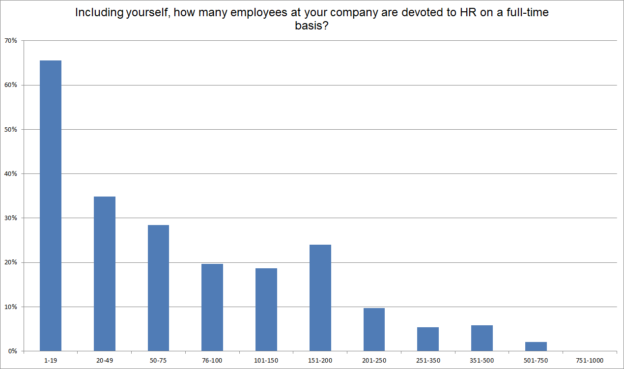Tag: Small Business
-

5 Things You’ll Never Hear an HR Department of One Say…
For those of you not in the know, an HR department of one is just what it sounds like: an HR department where one person covers all the bases from an HR, talent, and recruiting perspective. I have a special place in my heart for the HR department of one, because that’s where I came…
-

How to Hire Your First HR Staff Member (and who NOT to hire)
Last week I had a great conversation with a $10M startup company about how to make their first HR hire, and I thought those ideas would be worth sharing here. Many of you are already HR leaders at your own firms, but you probably haven’t given much thought to this idea of starting up an…
-
How to Start a Sideline HR Consulting Business
Today I’m going to talk about running a small business, marketing, and product creation. If that’s not your thing, come back later this week for more great HR-centered content. I think everyone has knowledge that is worth sharing. Some of that knowledge, you might have found, might even be worth some compensation. This past week…
-
Startup HR: Planning vs Doing
Startup HR is something that I have talked about a bit before. Today I will answer a question from a reader who works for HR in a startup company. The question Good Morning, I have been reading your blogs and your Slideshares and it has been easy reading for me and is helping me along…
-
HILG (Huntsville Industrial Liaison Group)-Why You Should Care
Last week I went to a meeting at HILG, AKA the Huntsville Industrial Liaison Group. Why should you care? Well, I think small affinity groups like these can help us to be better at what we do on a daily basis. Today I’ll talk a little about the group and then in general about how…
-
Human Resources Entrepreneur Lessons For Better Performance
4 Tips from the Life of a Human Resources Entrepreneur Shhh. I have a secret identity. When I’m not working on my blog/business as a human resources entrepreneur, I’m wearing a tie and going to a day job. I love the dual hats I am able to wear, and the experiences from both working a…
-
The New HR Department-Ultimate Guide
One of my older, popular posts is from 2010 and talks about how to run a one-person or new HR department. I wrote it after attending a conference session on the topic, but at the time I had never been in a small or new HR department before. Now I have that experience and would…